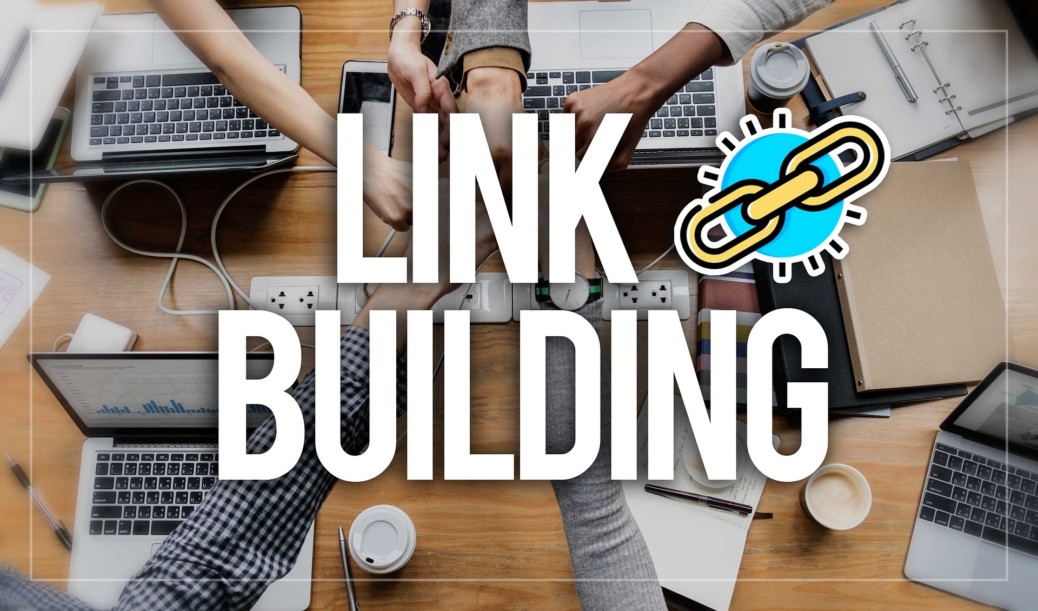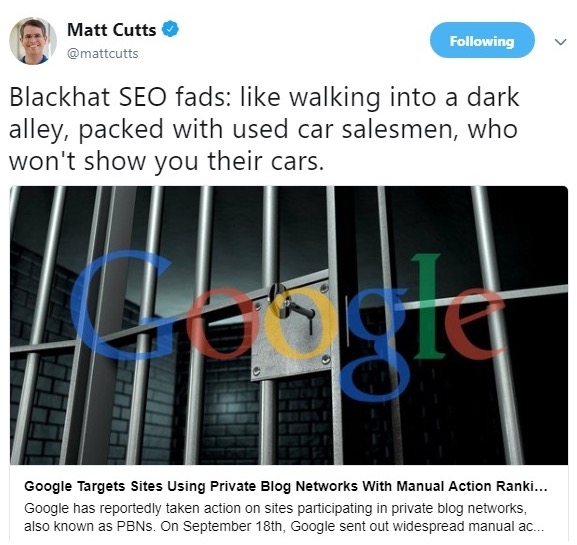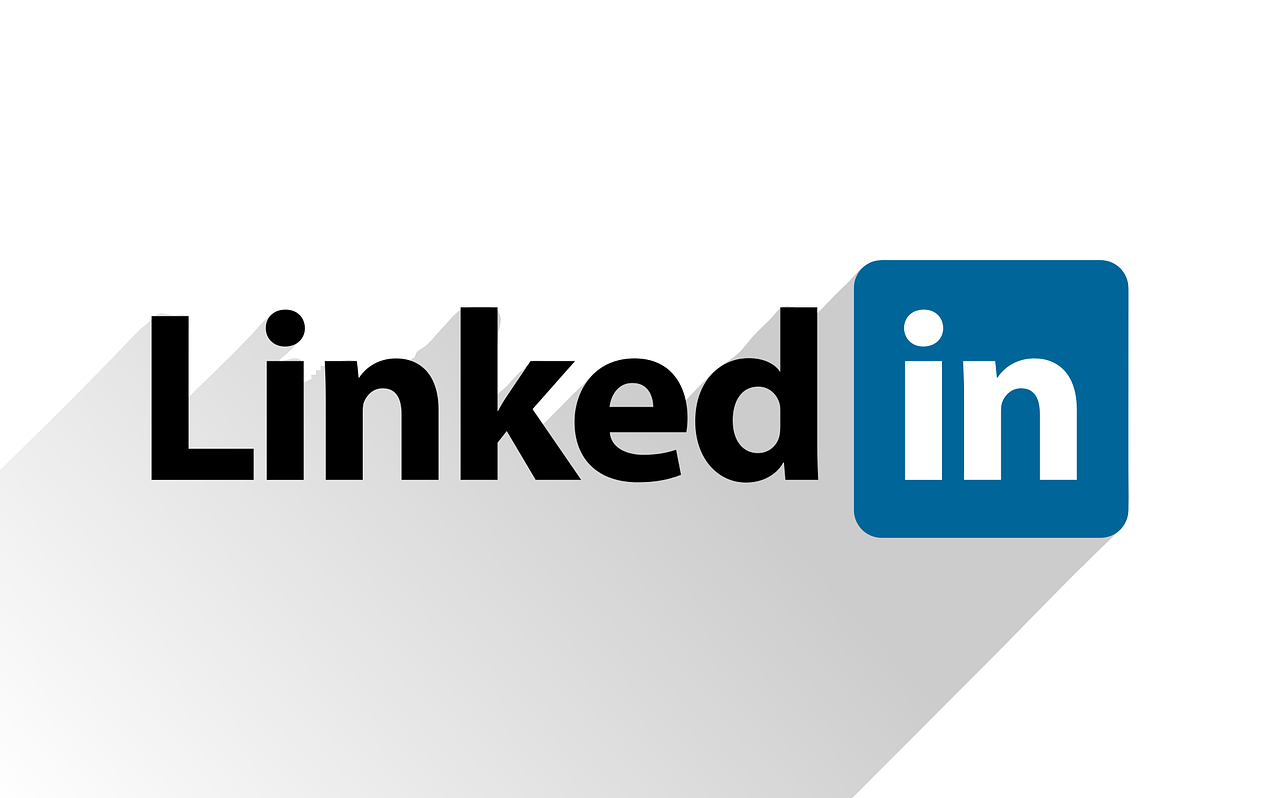As a startup, discoverability is part and parcel to your success. Whether you are trying to attract investor attention or find new customers, search traffic and online presence are a key component to this.
That said, to truly make this happen, the importance of quality backlinks for organic ranking cannot be overstated.
Quality backlinks are the currency of the internet, the “votes” that other websites cast to say that your site is valuable, with unique, up-to-date information, and that it should rank high in the SERPs (search engine results pages).
Earn enough of these votes and page number one Google rankings are yours!
The correlation between the top spots on Google and the number of referring domains linking to a website was confirmed by many SEO tests and case studies, one of the more recent being this study from SEMRush.

domain rank
Before you jump in and start developing your link-building strategies, you need to understand that backlinks are a slippery slope.
I could probably rattle off 15 backlinking mistakes right now, small and big, that could devastate a startup’s website.
Some of them can have lasting consequences, too, preventing you from ranking now and in the future. Google penalties are nasty beasts, and none hit harder than the ones designed to discourage artificial backlinking strategies.
However, I’ll focus on just three since they’re the ones that eager startups commonly make.
So here they are; three of the most dangerous link-building mistakes that startups can make:
- Acquiring backlinks too fast or too slow (unnatural link velocity)
- Not diversifying your backlink profile
- Using risky link-building schemes (PBNs, scholarship schemes and link exchanges)
Important note: As with everything SEO-related, content is king when it comes to backlink power, too. It’s a prerequisite to good ranking, so I want to emphasize it here. If the content you’re building links to is thin, poorly written and not user-centric, no amount of backlinks will get it to rank (or stay on top for very long).
Unnatural link velocity
Since it gives so much weight to external backlinks, the Google algorithm is especially sensitive to the speed at which backlinks are acquired.
The term for it is link velocity.
Take a look at these screenshots:
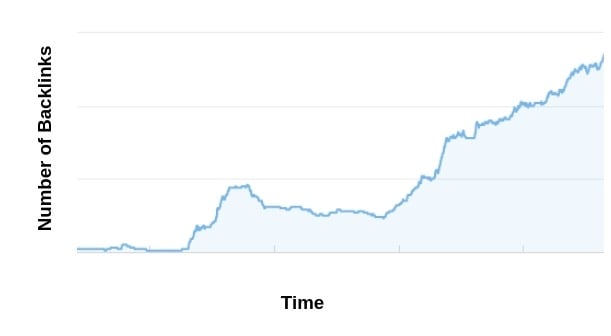
backlink 1
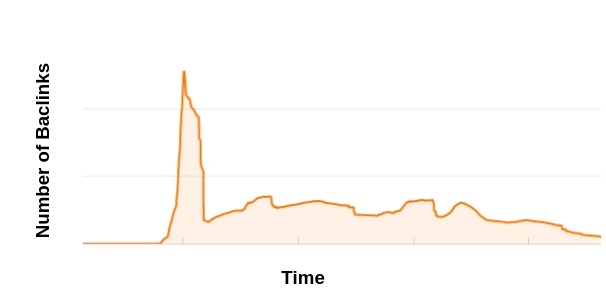
backlink 2
One of them shows good link velocity (hint: it’s the first one). The second one is a good example of the most common link-building mistake that beginners make.
Naturally acquired backlinks tend to grow in number as the site grows. It makes sense because, as more content is added, other sites have something of value to link to.
Bad link velocity can be both positive and negative. If you engage in link-building early on and then stop after two months, Google will grow suspicious of the reduced rate at which your site is getting backlinks. What’s wrong with it all of a sudden?
The same applies in reverse. Not a trickle of backlinks for a year and BAM! You get 1,000 new backlines in a week? It’s just too fishy to go unnoticed (and unpunished).
In both cases, Google’s Penguin algorithm will likely kick in, devaluing all your links and penalizing your site.
How to avoid this link-building mistake
The best way to avoid a Penguin penalty is to never run too many link-building campaigns simultaneously. Stick to backlink strategies that don’t produce backlinks in batches: i.e. guest posting, targeted press outreach, etc.
It’s tempting for startups to want to start strong when building links, but I’d advise against it. The last thing you want is to get hit with an algorithmic penalty as soon as you get the ball rolling. It’s difficult to get out of one, and it leaves residual ranking consequences for years to come.
Lack of diversification in link-building
Lack of diversity in link-building can occur in several different areas
- Too few referring domains pointing to a website
- Not enough backlink types
- Over-optimized anchor text
Emphasizing links from different referring domains makes perfect sense for Google. They want as many different sites linking to you to see if there’s a consensus on the quality of your site.
There’s a natural build-up to link-building. One of the link-building mistakes that rookie website owners make is that they go for top-tier links first, and then they just keep pounding on those throughout their backlinking campaigns. This is a huge red flag for Google.
How natural is for a site to get links from exclusively high authority websites?
It’s not natural at all. And it could prevent your site from ranking high in the SERPs. This is especially true for startup websites, which get their publicity where they can until they mature enough to get picked up by serious publications.
My advice is to stick with backlinks that are a natural-looking for a startup in your position, and simply add a pinch of valuable links every once in a while to strengthen your portfolio.
Anchor text (the snippet of text that the link is “glued” to, just like here) is another thing to keep an eye on. Generally, if you want to rank for “best gold bracelets,” you’ll want other sites hyperlinking to you using that longtail keyword. Still, go overboard with it and you could find your website sitting at the bottom of Google’s page three.
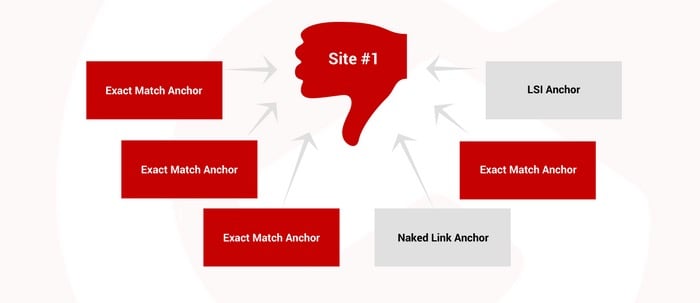
ranking
Again, it comes down to the fact that the exact match anchor text does not occur naturally. Most websites will link to phrases such as “visit their website,” “check it out here,” and “brand name,” or will simply drop a naked URL into the text.
Related: 7 Surprising Stumbling Blocks to Achieving Startup Success
How to avoid this backlinking mistake
Diversify, diversify and then diversify some more!
If you put all your eggs in one basket (even if it is working for now), you’re just one algorithmic update away from that basket being smashed against the wall.
If you’re guest posting, treat yourself to some low-hanging fruit, even if you’re not particularly impressed with the Domain Authority of the website (relevance is more important anyway), and keep an eye on your exact match/branded/naked URL ratio.
Participating in risky link-building schemes
If you’re thinking about gaming the ranking system by using any of the SEO “hacks” you’ve most likely read about, think again.
Every so-called ranking hack works for two to three months before Google cracks down on it.
Don’t think that Google doesn’t know about it sooner, though. The algorithm sniffs it out on day one, probably. Google just waits a bit with an update to make sure that the obliteration of manipulated rankings is complete and total.
Some of the link-building tactics that no longer work and can get your website penalized are:
- Links appearing near phrases such as “paid content,” “promotional content” and similar
- Comment spamming the links
- Links from personal blogging networks (PBNs)
- .edu links earned through scholarship and discount schemes
- Link exchanges with other websites
Why link exchanges, paid links and comment spam don’t work is pretty obvious: websites should rank high on merit and not (solely) on deep pockets and free time.
Now, “safe” personal blogging networks (PBNs) still work. With a good PBN strategy, your site can potentially rank on the first page of the SERPs.
However, around 1,000 people employed in Google’s web spam division comb through websites every day and issue manual penalties (close to 4 million last year alone). Once a PBN gets flagged manually, it’s history. The websites it links out to are not spared either, and they suffer a substantial rankings drop. In some cases, they earn a manual penalty, too, and are then worthless.
How to avoid this link-building mistake
Understand that organic ranking is a long play, and the strategies that work reflect that. A good website might take six months to publish your guest post, but I’ll bet you any day that that link is worth a boatload of comment links.
You and your team have worked for months, if not years, on building up your startup from the ground, so why jeopardize it all by exchanging low-quality backlinks with websites that are probably worse off than you are?
Backlinking mistakes cost you traffic, time and money
If you want to avoid common link-building mistakes, the only thing you need to remember is that quality beats quantity every single time.
Stop making these (very common) link-building mistakes and, instead, focus on developing quality content. You will kill two birds with one stone that way: you’ll build an interesting story around your startup, and you’ll have attention-grabbing content that you’ll easily place on authority websites (earning a backlink in the process).
If that means you’ll be getting 10 to 15 backlinks to your website per month instead of 100, so be it. Every one of those links you’ve earned the hard way will get you closer to your desired SERPs ranking.
Source: StartupNation.com

